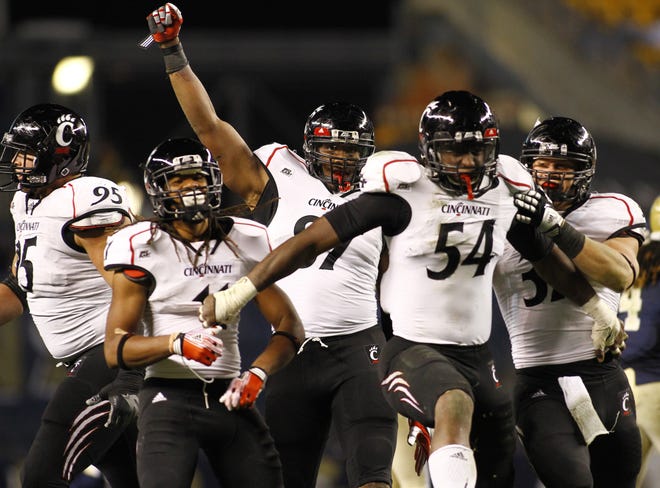
- Polls show Tim Ryan and J.D. Vance in tight race
- Ryan says Democrats don't have a clear message.
- Ryan pushing tax cut to help economy.
In just a few weeks, Ohioans will elect a new U.S. senator.
Democratic U.S. Rep. Tim Ryan and Republican J.D. Vance are facing off in the Nov. 8 election for the seat being vacated by retiring GOP Sen. Rob Portman. Independent polls have shown a competitive race between the two candidates, and national groups are pouring money into the Buckeye State to boost their preferred candidate.
More:What you need to know about how to register and vote in Ohio.
USA TODAY Network Ohio sat down with Ryan after an AFL-CIO convention in Columbus last month to discuss his campaign and key issues in the race. A Q&A with Vance will be published tomorrow.
Responses have been edited for length and clarity.
What should voters know about you that they don't already?
Ryan: I've consistently been a voice for Ohio and working-class people. I've always been fighting for my district in the state and have taken on my own party and kind of got the scars to prove it.
I ran against Nancy Pelosi for a leadership position. I don't know if a lot of people know that. She, by all accounts, was the most powerful Democrat in the whole country, and I took her on head-to-head in front of all of my colleagues, had to give a speech in front of my caucus with her sitting there, had to be very publicly against her.
I think if most people knew that, they'd say, "That's pretty gutsy for somebody to do that, and that must mean they were seeing something that the Democrats weren't doing that they needed to be doing for working people, and Tim had the guts to do it." I think that says a lot about what my view of leadership is.
What do you think are the strengths and weaknesses of the Democratic Party?
Ryan: One of the strengths is that I think there's people in the party who knows there's an issue with us not connecting to average people. I think there's an understanding that that's a problem.
The weakness is there's not a clear story, there's not a clear message of what Democrats want to do and who they want to do it for. There's no big vision for the party, for the country, really.
The political party that has a big, bold, exciting vision for the country is the party that's going to benefit politically, and I don't think we have that. I don't think the Republicans have it, either. Let's make no mistake about it. But I think that's probably the weakness that we have.

People are still concerned about the economy and inflation. What needs to happen to lower costs and help people afford their day-to-day needs?
Ryan: I've been screaming from the mountaintop: We need a tax cut for people. We need to put money in their pocket. We're not going to solve inflation in the short term.
Things need to shake out. It's a global phenomenon. People are getting crushed. It's going to take some time. I just think people didn't do anything wrong. We should put some money in their pocket to help them reduce some of this burden while we do the CHIPS Act, while we do infrastructure, while we bring supply chains back and manufacturing back. That's mid to long term.
Short term needs to be a tax cut, needs to be an increase in production for natural gas so that we can lower costs here for people, and we can continue to move to a clean economy. People are getting hurt. I just think you've got to admit it. You can't pretend like it's not happening.
To what extent should the federal government be involved in abortion policy?
Ryan: I think the best thing, the easiest thing to do is just codify Roe v. Wade into law through the Women's Health Protection Act. We passed it out of the House, couldn't get it through the Senate. That to me is going to be an issue because you have extremists on this issue like J.D. Vance.
These are very extreme positions, calling rape inconvenient, forcing somebody who's been raped to bring the baby to term. And then to be for a national abortion ban.
All these stories we hear in your paper and other papers on women having a problem, can't get an Ohio medical professional to help them, they've got to go to Illinois, Indiana or wherever.
If you have a national ban, these people are going to have to go to Canada. That's a very extreme position. Just go back to Roe v. Wade. We had settled law for 50 years. It wasn't chaos. Let's just go back to that.
What should the government be doing to make health care and prescription drugs more affordable?
Ryan: Do what we what we started to do in the inflation bill. We were only able to do it through Medicare with insulin and prescription drugs.
We should try to do that across the board with insulin and capping insulin costs and making prescription drugs more affordable. I think that's going to be key.
I always felt like a public option for people to be able to buy into the Medicare program − we can talk about how to do that − but buying into some public option to compete with the private sector so people have a place to go where they can get reasonable health care at a reasonable cost.
We're the wealthiest country in the world. Our health care system is broken. I hope, too, that we can start having a conversation about health and not just health care.
We've got very much a disease management system where we're waiting for people to get really sick and then we spend a lot of money taking care of them.
How do we front load that and really start helping people get and stay healthy in our schools, through the way our businesses cover health? Really front loaded toward prevention, to me, would save a boatload of money and would be the way to go about it.

Do you believe President Joe Biden was legitimately elected in 2020?
Ryan: I do, and I think anybody who is trying to call that into question is trying to undermine our democracy.
A lot of people know better. There's been no evidence. All of the however many Trump judges themselves that he appointed are saying no, this is garbage. It's undermining our democracy.
A guy like J.D. Vance − this smart guy, he went to Yale, he's got a Yale law degree − he knows better. Can't have that.
We conducted a poll that found many voters are concerned about threats to democracy. What threats, if any, do you think currently exist?
Ryan: I think the biggest threat will be if the exhausted majority is too tired to get engaged.
I think that's a threat: Good people doing nothing or good people sitting on the sidelines. This is a small group of people that are doing this. It's not a majority, it's not even anywhere close to majority.
It's probably not even a majority of Republicans that actually are full-throated into this stuff. The question's really going to be, will good people stand up and try to make a difference regardless of party? These questions are too big to say, "I can't vote for a Democrat because X, Y." No.
This guy says that the election was stolen, and it wasn't, and that's pretty fundamental, right? To me, there are things that are higher than party, and that's preserving the democracy, preserving the country.
Some of your ads and rhetoric about China have garnered criticism from Asian Americans. What have you taken away from conversations with voters about those ads, and have those concerns informed how you discuss China now?
Ryan: We are trying to be very, very clear − more so after those conversations − but just very clear: We are talking about the Communist Chinese government.
We are asking, and I am asking, Asian Americans to be a part. They're Americans. They're American citizens. They are part of us taking on China. They know better than most what China's doing, so they are a part of the big competition that we need to win. We just want to be very, very clear on that.

You're trying to appeal to moderates, but critics are quick to point out that you have a 100% voting record with President Joe Biden. How do you persuade voters that you wouldn't be a rubber stamp for Democratic leaders in the Senate?
Ryan: I ran against Nancy Pelosi. I've gotten in fights on stage with Bernie Sanders. I've been very public with my disagreements with President Obama and Biden during their trade issues with (the Trans-Pacific Partnership) and Fast Track and all of those. Very, very public in my votes against them and my comments against them.
I think people should know that. Then I think the question is, what are we voting on here? The CHIPS Act that landed Intel, the infrastructure bill that's going to create 600,000 jobs, the rescue package that saved 100,000 pensions in Ohio. What of these bills does J.D. Vance want me not to vote for it?
Just because I have the guts to tell Biden I'm not for his student loan thing, or I'm not going to agree with what he's doing on the border, or I don't agree on X, Y or Z, doesn't mean that if he's doing something good, I'm not going to support it.
It's the same reason I supported Trump when he renegotiated NAFTA and took on China. It was best for Ohio.
I just want the picture to be crystal clear here: My whole career has been about Ohio and workers here. Sometimes I get in fights with Democrats, and sometimes I get in fights with Republicans, but everybody knows where I stand. Those are good things for our state, so of course I'm going to be for them.
Haley BeMiller is a reporter for the USA TODAY Network Ohio Bureau, which serves the Columbus Dispatch, Cincinnati Enquirer, Akron Beacon Journal and 18 other affiliated news organizations across Ohio.
Source link








